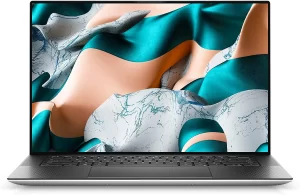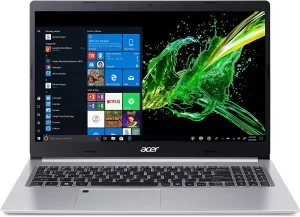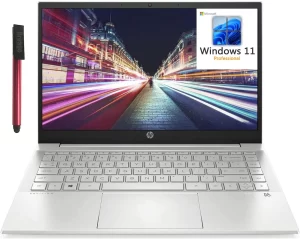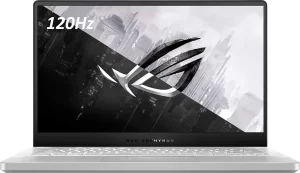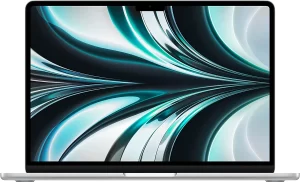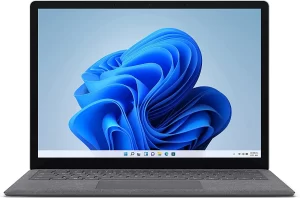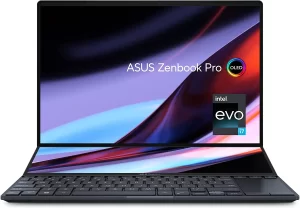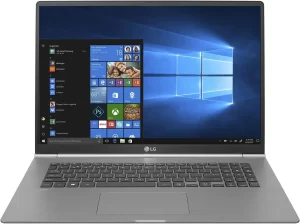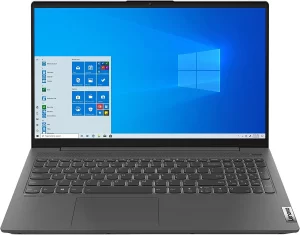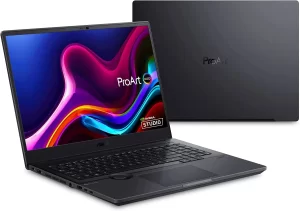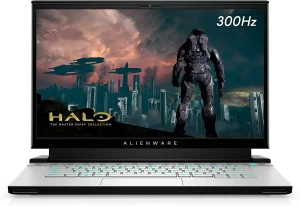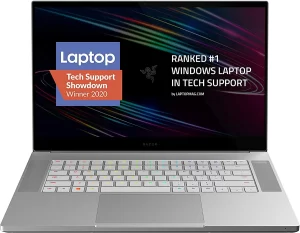Are you an engineering student seeking the perfect laptop? This guide is just for you! We’ve narrowed down the top choices in the market based on affordability, portability, & functionality, ensuring you make an informed decision for your engineering coursework & projects. Let’s dive into these engineering-friendly laptops & help you find the ideal device for your academic success.

| # | Products | Description | Unique factors | Price |
|---|---|---|---|---|
| 1 | Dell XPS 15 | High-performance, Intel Core, dedicated graphics. | InfinityEdge display, Waves Nx 3D audio, carbon fiber palm rest. | View |
| 2 | Acer Aspire 5 | Everyday use, Intel Core/AMD Ryzen, integrated graphics. | Color Intelligence display, Acer True Harmony audio, slim design. | View |
| 3 | HP Pavilion Plus 14 | Everyday use, Intel Core/AMD Ryzen, integrated graphics. | Micro-edge display, HP Fast Charge, B&O audio. | View |
| 4 | Asus ROG Zephyrus G14 | Gaming laptop, AMD Ryzen, NVIDIA dedicated graphics. | AniMe Matrix LED, Dolby Atmos audio, slim design. | View |
| 5 | Apple MacBook Air M2 | Ultrabook, Apple M2, integrated graphics. | Retina display, fanless design, macOS ecosystem. | View |
| 6 | Microsoft Surface Laptop 4 | Ultrabook, Intel Core/AMD Ryzen, integrated graphics. | Alcantara fabric keyboard, Windows Hello, Omnisonic speakers. | View |
| 7 | Asus Zenbook Pro 14 Duo OLED | Professional laptop, Intel Core, NVIDIA dedicated graphics. | ScreenPad Plus, OLED display, stylus support. | View |
| 8 | LG Gram 17 | Ultrabook, Intel Core, integrated graphics. | 17-inch WQXGA display, long battery life, lightweight design. | View |
| 9 | Acer Predator Helios | Gaming laptop, Intel Core, NVIDIA dedicated graphics. | AeroBlade 3D fans, PredatorSense, RGB keyboard. | View |
| 10 | Lenovo IdeaPad 5 | Everyday use, Intel Core/AMD Ryzen, integrated graphics. | Rapid Charge battery, Dolby Audio, privacy shutter on webcam. | View |
| 11 | Asus Pro Art Laptop | Professional laptop, Intel Core, NVIDIA dedicated graphics. | Pantone Validated display, fast storage, Thunderbolt 4 ports. | View |
| 12 | Alienware m15 R4 | Gaming laptop, Intel Core, NVIDIA dedicated graphics. | Cryo-Tech cooling, customizable RGB, Alienware Command Center. | View |
| 13 | Razer Blade 15 | Gaming laptop, Intel Core, NVIDIA dedicated graphics. | Razer Chroma RGB, vapor chamber cooling, THX Spatial Audio. | View |
Best Laptops for Engineering Students
1. Dell XPS 15
Dell XPS is an amazingly well-rounded device among best laptops for engineering students. It comes equipped with high-tech components wrapped in an elegant chassis. It is lightweight and can be easily carried around campus. It delivers sharp and stunning visuals through its glorious and immersive InfinityEdge display.
If you can afford it, spring for the model with 3.5K OLED touchscreen display. However, if sufficient just use the FHD screen. This laptop comes with an RTX 3050 Ti GPU and latest 12th gen Intel Core CPU. It also has Windows 11 which gives the user maximum utility options and firepower.
Pros
- Excellent speakers
- Comfortable keyboard
- Large and responsive trackpad
- Impressive performance
- Stunning display
Cons
- Mediocre webcam
- Expensive
- Average battery life
| Storage | 512 GB SSD to 1 TB |
| Operating System | Windows 11 |
| CPU | Intel Core i7-12700H |
| GPU | Nvidia GeForce RTX 3050 Ti |
| Screen Size | 15.6 inches OLED |
| RAM | 16 GB |
| Display | 3,456 x 2,160p |
| Battery | 8- 10 hours |
2. Acer Aspire 5
Acer Aspire is an affordable choice for engineering students. It packs many powerful specs and offers great value for low cost. If you are on a tight budget this laptop is a great choice. It comes with an Intel Core i5-1235U CPU and Intel Iris Xe graphics which deliver smooth and fast performance for multitasking.
Engineering students need ample memory and storage for running programs like Java and Python. This laptop features 16 GB of RAM and 512 GB SSD storage which is adequate for most assignments. It has several ports and the user has a wide range of connectivity options. Considering its price and functionality, this laptop is a great pick for engineering students.
Pros
- Affordable
- Strong specs
- Upgrade options
- High performance
- Portable
Cons
- Mediocre keyboard
- Short battery life
- No biometric login option available
| Storage | 512 GB SSD |
| Operating System | Windows 10 |
| CPU | Intel Core i5-1235U |
| GPU | Intel Xe Graphics |
| Screen Size | 15.6 inches |
| RAM | 16 GB |
| Display | 1080p |
| Battery | 6-7 hours |
3. HP Pavilion Plus 14
Display quality is one of the main concerns for engineering students while buying a laptop because they spend a lot of time staring at screens. The HP Pavilion Plus 14 offers a beautiful OLED display with a stunning resolution of 2880×1800 pixels. It has a 16:10 aspect ratio and 90Hz refresh rate so images load on this device rapidly and accurately. It delivers great contrast and a sharp picture.
This laptop does not lag behind on internal specs either. It comes with an Intel Core i7-12700H CPU and Intel Iris Xe GPU. If you need to tackle a heavier workload you can easily upgrade its features within an affordable price range. This device delivers a ton of value for its price. It also has a comfortable keyboard with two-level backlighting.
Pros
- Powerful specs
- Gorgeous, high-resolution display
- All-metal design
- Resilient build
- Sleek chassis
- Strong multimedia performance
Cons
- Mediocre battery life
- Onboard memory cannot be upgraded after buying the laptop
- Heavier than other 14-inch models
| Storage | 1 TB |
| Operating System | Windows 11 |
| CPU | Intel Core i7-12700H |
| GPU | Intel Xe Graphics |
| Screen Size | 14 inches |
| RAM | 16 GB |
| Display | 2880 x 1800 |
| Battery | 6-7 hours |
4. Asus ROG Zephyrus G14
This powerful device is a gaming laptop which can be used by engineering students for university assignments. Its AMD Ryzen 9-4900HS CPU delivers enough firepower for even heavy-duty tasks and its Nvidia GeForce RTX 2060 Max-Q GPU feature provides crisp and accurate graphics.
This laptop can go without charging for nearly 11 hours so you can easily use it throughout a day of classes without worrying about finding a charging port. It comes in a mid-range price and it is not overly expensive. It has an efficient cooling system that prevents the device from overheating even after hours of usage.
Pros
- Portable and easy to carry around
- Not too pricey
- Powerful performance
- Top notch display
- Great audio output
- Excellent battery life
Cons
- No webcam
- Underwhelming keyboard
| Storage | 1 TB |
| Operating System | Windows 10 |
| CPU | AMD Ryzen 9-4900HS |
| GPU | Nvidia GeForce RTX 2060 Max-Q |
| Screen Size | 14 inches |
| RAM | 16 GB |
| Display | 1080p |
| Battery | 11 hours |
5. Apple MacBook Air M2
The Apple MacBook Air M2 is one of the best laptops for engineering students, especially for people who prefer using Apple devices. Its revolutionary ARM-based Apple M2 chip offers great performance along with an impressive battery life. It is a thin and highly portable laptop so you can conveniently use it all day in campus on a single charge.
Engineering students will find that this laptop can flawlessly run any software or program that they require for their assignments. Its offers plenty of screen space for work and comes in an eye-catching design. It is equipped with a high-resolution, 1080p webcam which is very useful for attending online classes or holding virtual group meetings with your classmates.
Pros
- LiquidRetina display
- Bright and vivid visuals
- Lightweight
- MagSafe fast-charging feature
- Two Thunderbolt ports
- Excellent battery life
- High-resolution webcam
Cons
- Very expensive
- Not many outstanding features compared to less expensive models
| Storage | 1 TB |
| Operating System | Mac OS |
| CPU | Apple M2 (8-core) |
| GPU | Integrated 10-core GPU |
| Screen Size | 13.6 inches |
| RAM | 16 GB |
| Display | 2,560 x 1,664 |
| Battery | 11 hours |
6. Microsoft Surface Laptop 4
This laptop is a perfect pick for a variety of workloads ranging from content creation to design work. Users can pick between 13.5 or 15-inch screens but the 15-inch one is a better option for engineering students as you will get more screen real-estate to work with. The 15-inch model’s CPU also has a higher thread count for elevated performance.
Its touchscreen is very handy for creative work and the device comes equipped with a Surface Pen. Its lid is made from aluminum and the touchscreen does not require constant readjustment during usage. It has a gorgeous PixelSense display feature with high resolution that delivers eye-catching visuals with accuracy.
Pros
- Highly responsive trackpad
- Comfortable keyboard
- Lightweight
- Handy Surface Pen
- Glorious display
- Portable and easy to carry around
Cons
- Less connectivity options
- Average battery life
| Storage | 1 TB |
| Operating System | Windows 11 |
| CPU | Intel Core i7-1185G7 |
| GPU | Intel Iris Xe Graphics |
| Screen Size | 15 inches |
| RAM | 32 GB |
| Display | 2496 x 1664 PixelSense Display |
| Battery | 7-8 hours |
7. Asus Zenbook Pro 14 Duo OLED
The Asus Zenbook Pro 14 is among the best laptops for engineering students who are looking for outstanding display features. This device has not one but two stunning screens. It has a primary 14.5-inch 4K touch OLED display which is supplemented with a 12.7-inch secondary screen. It is perfect for multitasking and for using complicated programs.
Besides its display, this device is a powerhouse when it comes to fast and flawless performance. It has a core i7 CPU, RTX 3050 GPU and a massive 1 TB NVMe SSD of storage space. Its build incorporates smooth hinges that can be used to adjust the laptop according to your convenience. Another striking advantage of this laptop is its large array of ports which offer multiple connectivity options.
Pros
- Excellent connectivity options
- Efficient cooling system
- Comfortable keyboard
- Elegant design
- Outstanding primary and secondary display
Cons
- Average battery life
- The ports placed at the back can be hard to access
- Small trackpad
| Storage | 1TB SSD PCIe Gen 4 |
| Operating System | Windows 11 |
| CPU | Intel Core i7-12700H |
| GPU | Nvidia GeForce RTX 3050 Ti |
| Screen Size | Primary: 14.5-inch Secondary: 12.7-inch |
| RAM | 16 GB DDR5 |
| Display | Primary: 2880 x 1800 Secondary: 2880 x 864 |
| Battery | 7-8 hours |
8. LG Gram 17
This laptop is a suitable choice for engineering students who do not want to select between screen size and portability. The LG Gram 17 has a generous 17-inch screen but despite its screen size, it is not bulky or heavy. You can easily carry it around campus all day as it weighs less than 3 pounds. It also has a sleek and slim build and thin chassis.
This device does not disappoint the user when it comes to specs either. It has an Intel Core i7-1165G7 CPU and Intel Iris Xe graphics GPU. It has technologically advanced hardware that delivers exceptional performance. Its 16 GB RAM and up to 2 TB internal storage can handle even hefty engineering programs for software-driven tasks and coursework.
Pros
- Thunderbolt 4 enabled
- Lightweight and portable
- Excellent performance
- Brilliant battery life
- Massive storage capacity
- Elegant and sleek design
Cons
- Expensive
- No touchscreen available
- Average keyboard
| Storage | Up to 2 TB |
| Operating System | Windows 10 |
| CPU | Intel Core i7-1165G7 |
| GPU | Intel Iris Xe |
| Screen Size | 17-inch |
| RAM | 16 GB |
| Display | 2560 X 1600 |
| Battery | 11-12 hours |
9. Acer Predator Helios
The Acer Predator Helios has specs that can handle heavy-duty engineering tasks because it is designed for gamers. Its powerful 11th generation Intel Core CPU delivers incredibly fast performance and its storage and RAM can easily support a variety of computational software. It is popular among students due to its affordability as well.
It has an FHD 15.6-inch screen and NVidia GeForce GTX 3060 GPU. Its GPU can handle graphics-intensive tasks and programs. It comes with 5th generation AeroBlade Fan with 89 blades thermal management system that cool the laptop by decreasing throttling to maximize performance. So the device works smoothly and does not overheat even after long work sessions.
Pros
- Affordable
- Efficient performance
- Excellent cooling system
- Good display specs
- Sturdy and resilient build
Cons
- Short battery life
- No SD or microSD card slot
- Average speakers
| Storage | 512 GB SSD |
| Operating System | Windows 10 |
| CPU | Intel Core i7-11800H |
| GPU | NVIDIA GeForce RTX 3060 6GB |
| Screen Size | 15.6-inch |
| RAM | 16 GB DDR4 |
| Display | IPS Full HD |
| Battery | 5-6 hours |
10. Lenovo IdeaPad 5
This laptop is suitable for those engineering students who are looking for an affordable and portable device. This device has a 16-inch high-resolution screen, Nvidia GeForce RTX GPU and a decent AMD Ryzen processor.It cannot handle graphically intensive tasks or programs but it works well for beginner to mid-range workload.
It squares up to its competition when it comes to RAM and storage space with 16 GB of RAM and 1 TB SSD. Its most attractive feature is its stunning display. It has a 16:10 aspect ratio that offers extra height to the display and a crisp 2560×1600 screen resolution. Its 16-inch screen delivers first-rate display.
Pros
- Immersive display
- Strong build
- Portable and lightweight
- Budget-friendly
- Comfortable keyboard
- Efficient cooling system
Cons
- Mediocre trackpad
- Average audio output
- Underwhelming GPU feature
| Storage | 1 TB |
| Operating System | Windows 10 |
| CPU | AMD Ryzen 7 5800H |
| GPU | Nvidia GeForce RTX 3050 |
| Screen Size | 16-inch |
| RAM | 16 GB DDR4 |
| Display | 2560x1600 |
| Battery | 6-7 hours |
11. Asus Pro Art Laptop
This laptop is very expensive but given its premium features, it can be used for professional caliber work during university life and after graduation. This laptop can be used as a mobile workstation due to its powerful specs. It delivers exceptional performance and combines high functionality with portability. Despite its 17-inch screen, its innovative design gives it a lightweight chassis.
The NanoEdge bezel feature enhances the screen-to-body ratio to 84%. Besides splendid visuals, this laptop packs plenty of firepower in its internal components as well. It has 2 TB of internal storage, a hexa-core Intel Xeon E-2276M processor and NvidiaQuadro RTX 3000 GPU. It also has a wide array of ports for connecting external devices.
Pros
- Powerful specs
- Lightweight and portable
- Beautiful 16:10 aspect ratio screen
- All-metal, resilient design
- High color-accuracy
- Noiseless fans
Cons
- Expensive
- Poorly positioned ports
- Average webcam
| Storage | 2 TB |
| Operating System | Windows 10 Pro |
| CPU | Intel Xeon E-2276M |
| GPU | NVIDIA Quadro RTX 3000 Max-Q |
| Screen Size | 17-inch |
| RAM | 16 GB DDR4 |
| Display | 1920 x 1200 |
| Battery | 6-7 hours |
12. Alienware m15 R4
The Alienware m15 R4 is a powerful gaming laptop that can easily alternate as a device for engineering projects. It is a well-built laptop with enough computing muscle to run engineering programs smoothly. It has a high-end and stylish design with customizable LEDs along the keyboard and honeycombed cooling layout. So you can use it even in dim lighting and for long hours without the system heating up.
It has a glorious 4K OLED display which offers gorgeous visuals. It has many connectivity options such as Thunderbolt, HDMI, and a port for Alienware’s Graphics Amplifier card. This feature enhances the already impressive 8GB Nvidia GeForce RTX 3070 GPU capacity of the laptop. So it is perfect for projects in which users need excellent GPU performance.
Pros
- Excellent GPU
- Overall strong internal specs
- Attractive 4K OLED display
- Ample storage space
- Chassis lighting
- Bright and vibrant display
Cons
- Heavy
- Short battery life
- Expensive
| Storage | 1 TB |
| Operating System | Windows 10 |
| CPU | Intel Core i7-10870H |
| GPU | NVIDIA Quadro RTX 5000 |
| Screen Size | 15.6-inches |
| RAM | 16 GB |
| Display | 3840 x 2160 |
| Battery | 6-7 hours |
13. Razer Blade 15
The Razer Blade 15 can be used as a mobile workstation by engineering students as it comes with a high-resolution 4K OLED screen and Quadro RTX graphics that can handle graphically-demanding programs. It not only works great but looks captivating as well. It has an elegant, all-aluminum build that is resistant to any wear-and-tear.
It offers a dazzling array of internal specs including an Intel Core i7-9750H processor with 4.5 GHz turbo speed, a whopping 16 GB of RAM and 1 TB of internal storage. So you do not have to worry about facing any hassle or interruptions while using advanced software. It delivers stunning visuals with super-saturated color, ultra-high brightness, and nearly infinite contrast ratio.
Pros
- Long battery life
- Large touchpad
- Efficient cooling
- Sleek aluminum exterior
- Gorgeous 4K OLED screen
Cons
- Very expensive
- Mediocre keyboard
- Standard warranty of just one year
| Storage | 1 TB |
| Operating System | Windows 10 Home |
| CPU | Intel Core i7-9750H |
| GPU | Nvidia GeForce RTX 3070 |
| Screen Size | 15.6-inches |
| RAM | 16 GB |
| Display | 3840 x 2400 |
| Battery | 9-10 hours |
The Ultimate Laptop Buying Guide for Engineering Students
Screen size and build of the laptop are major concerns for students because larger screen size offers more space for smoothly running programs and multitasking. However, laptops with larger screens are often bulky and difficult to carry around. In the list above, we have given a few options with adequate screen size and sleek, lightweight build.
Resolution of the laptop that you buy is important because engineering assignments require visual accuracy. Buy a laptop with FHD resolution or higher display specs for crisp visuals. Refresh rate is another factor that you should consider as it determines how efficiently your system can jump from one image to another. Select a model with at least 144 Hz refresh rate.
As an engineering student, your laptop should have enough firepower to operate hefty apps, software, and programs. We recommend that you should select a laptop with at least a new mid-range CPU such as Intel Core i5 or AMD Ryzen 5. Your laptop should also have a decent graphics card for using CAD (computer assisted design) and 3D analysis software. The device that you buy should have an integrated Nvidia or AMD GPU.
It is preferable to purchase a laptop that has a sleek and slim design so that it is lightweight and can be carried around campus in your college bag or on the commute to university. So if you plan on carrying your laptop around classes, buy one with a sleek design.
Engineering students often have to visit sites with rough-and-tumble conditions so purchase a laptop with preferably an all-metal design that can withstand some knocks.
Ports and inputs are an important factor to consider before purchasing a laptop for engineering projects because students often have to connect their laptops to projectors and external monitors. So opt for a laptop that offers plenty of connectivity options such as Thunderbolt port, SD card slot, etc.
Mostly laptops that are suitable for engineering students come with Windows operating system. Very few MacBook models with mac OS are selected by engineering students because they are very expensive. Chromebooks with Chrome OS are not a great choice for university assignments because they offer limited utility.
If you are more inclined towards mac OS buy a MacBook but if you are buying a Windows laptop, pick one preferably with latest Windows 11 or Windows 10 Pro.
Before making a final choice, carefully consider your budget, requirements, and portability preferences. If you live on-campus in a dorm, you can also go for a bulky laptop with more computing firepower. But if you have to carry your laptop on a lengthy commute, opt for a more portable option. You can also consult your professors, seniors, and course advisors about the types of software and programs you will have to use during your coursework so that you can purchase a laptop accordingly.

